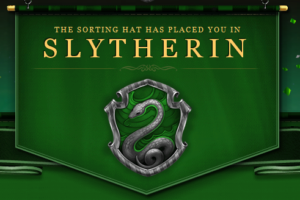I identify most with the Feminine when She is monstrous.
Forget those flirtatious princesses with little-girl bodies. Give me fat octopus drag queen Ursula the Sea Witch, rape survivor Medusa, skull-stomping goddess Kali with her ecstatic thirsty tongue and dozen limbs. I like romantic walks along the beach at sunset while Cthulhu rises from the ocean. (Preferably in the winter.) When people criticize Barbie for having an unrealistic female form, I laugh; you better believe it, she’s a seven-foot-tall babe who could put your eye out with her perfectly pointed foot.
Now, I do have many parts, with different ages and genders, so there is one who loves rosebuds and sparkly necklaces and kittens. But she is six years old, and this is not the kind of world where she can walk around outside alone.
I have a new mantra for living in a society that indoctrinates us with shame and judgment. Adapt as needed to your circumstances. Each day I look in the mirror and say, with as much glee as I can muster:
I’m fat, I’m queer, and I’m crazy!
Embracing queerness–that is, dropping the effort to be “female”–has opened up all sorts of interesting investigations about habitual patterns of movement in my body, as well as the interpretive filters I unconsciously put over the image in the mirror. It’s almost cliché by now to point out that fat-phobia connects with the sexist backlash against women taking up space. Yet so many otherwise liberal women keep fat-shaming themselves and others, because our gender markers have inequality built in. When we see a big person with expansive, relaxed body movements, we struggle to recognize her as feminine, and therefore attractive. But now that I have been trying to walk more “like a man”–longer, confident steps, with feet and knees turning out slightly to the sides–I’ve found that the foot balance problems identified by my Feldenkrais bodywork teacher have eased up. And I haven’t even worn high heels since the early 2000s!
“Crazy” means that I have PTSD, sensory processing disorder and some other Aspie traits, and an imaginative world that is more vivid and important to me than a lot of meatspace relationships. Feminists have reclaimed madness, like fatness, as feminine excess disapproved by society: a “hysterical” intensity of feelings. Mine is not so chaotic. For me, it’s about not fitting in, seeing what others don’t see, openly taking time for emotional self-care, and not hiding the fact that my priorities are unusual. My shame around craziness is the fear that I will be so absorbed in my inner experiences that I’ll lose social self-consciousness and do something conspicuously embarrassing. This takes us back to femininity and its concomitant demand for 24-7 awareness that you are being looked at, so you’d better be easy on the eyes.
Role Monsters, Jess Zimmerman’s new series at the online lit mag Catapult, says to hell with that. “Being a monster is harder than being a hero,” she writes pointedly in the first installment, about harpies as a symbol of men’s fear of female ambition. But it’s the second essay, “What If We Cultivated Our Ugliness? or: The Monstrous Beauty of Medusa”, that made me cry and cheer.
Before I shaved my head…I had never thumbed my nose quite so drastically at beauty. Fat women often rely on other markers of femininity to edge us into the visible spectrum: flowing hair, smooth skin, expansive cleavage. I’d been weird-looking and tough in my early twenties, but at some point I’d drifted into trying to please people with my presentation, to fit in, to hover around staring at the mark even though I’d never hit it. Hacking into my hair felt as transgressive as carelessly sporting a bad complexion, which I also had at the time. I was wrecking my tenuous connection to beauty, crumpling it up and throwing it away.
I looked great with my haircut, but “great” in the sense of “a vast and incalculable thing.” I definitely didn’t look pretty; I looked further than ever from “pretty,” more than ever like a weird hulking creature instead of a girl. But the haircut also made everything else that was wrong about me—my fat, my heavy bones, my combat boots—fall into place and finally make sense. I wasn’t missing the mark after all; the mark was irrelevant for me. I could make a new mark.
When she was younger, Zimmerman says, she went by the Internet username Medusa, a creature so ugly you literally couldn’t look at her. Now she appreciates the power in the symbol that once represented her low self-esteem.
I didn’t know there was a difference between “not beautiful” and “ugly.” I thought that my failure to meet basic standards of femininity and prettiness meant I was repulsive.
But ugliness is something greater and stronger and stranger than mere non-beauty. It’s not an absence, but a new force, unpredictable and unrestrained. Beauty has rules and symmetry; ugliness does not. Helen of Troy’s face might have launched a thousand ships, but one look from Medusa could have sent them all to the bottom, weighted down with a crew of stones.
According to the Greek myth, Medusa was actually once so beautiful that the sea-god Poseidon desired her. He raped her in Athena’s temple, and the goddess punished the mortal victim–not the god, naturally!– for this sacrilege by turning her into a monster. Zimmerman muses:
Medusa lost her beauty—or rather, it was taken from her. Beauty is always something you can lose. Women’s beauty is seen as something separate from us, something we owe but never own: We are its stewards, not its beneficiaries. We tend it like a garden where we do not live.
Oh, but ugliness—ugliness is always yours. Almost everyone has some innate kernel of grotesquerie; even fashion models (I’ve heard) tend to look a bit strange and froggish in person, having been gifted with naturally level faces that pool light luminously instead of breaking it into shards. And everyone has the ability to mine their ugliness, to emphasize and magnify it, to distort even those parts of themselves that fall within acceptable bounds.
Where beauty is narrow and constrained, ugliness is an entire galaxy, a myriad of sparkling paths that lurch crazily away from the ideal. There are so few ways to look perfect, but there are thousands of ways to look monstrous, surprising, upsetting, outlandish, or odd. Thousands of stories to tell in dozens of languages: the languages of strong features or weak chins, the languages of garish makeup and weird haircuts and startling clothes, fat and bony and hairy languages, the languages of any kind of beauty that’s not white. Nose languages, eyebrow languages, piercing and tattoo languages, languages of blemish and birthmark and scar. When you give up trying to declare yourself acceptable, there are so many new things to say.
For another variation on the feminist theme of “Don’t play a rigged game”, consider this creative midrash on one of the Hebrew Bible’s disturbing tales of parental abuse and violence against women. Fred Clark is a progressive Christian ex-evangelical who blogs as Slacktivist. In this 2012 post, “Regarding Jephthah’s Daughter”, he considers different ways commentators have tried to make this story more palatable. In Judges 11, the Hebrew commander Jepthah vows that if God grants him victory over the Ammonites, he will sacrifice as a burnt-offering whoever first comes out of his house to meet him. Like the father in “Beauty and the Beast”, Jephthah was probably expecting that it would be an animal, not his own daughter. So he had to kill her.
Or did he? Clark contrasts the way the evangelical church taught the story, which assumed that the vow was binding, and the commentaries in the Jewish Encyclopedia, where the rabbis were pretty clear that Yahweh is not a Beast. According to Jewish tradition, Jephthah’s pride, his embarrassment at having made a rash and invalid vow, or (at best) his ignorance kept him from doing the right thing and asking the temple priest to annul his promise. It should have been obvious that God would not respect, let alone enforce, a vow to commit murder. Clark writes:
I don’t recall ever hearing a Sunday sermon on the story of Jephthah, but I probably heard a half-dozen Sunday school or Bible class lessons, and all of them pointed to this as the moral of this immoral story: Don’t make rash vows, because you will be bound by them just like Jephthah was.
And that’s monstrous — almost as horrifying as the original story. Those well-meaning Sunday school teachers all assumed, as Jephthah did, that he was absolutely bound by his vow, no matter what. And thus they all repeated Jephthah’s error — assuming that such vows and rules might somehow matter more than the life of Jephthah’s daughter.
That seems to me to be precisely the opposite of what this brutal little story actually illustrates. It shows us the lethal ignorance and sinful pride of remaining “inflexible.” The story of Jephthah is the story of everyone who decides that vows and codes and rules must be absolute. That way of thinking always ends in death.
While we’re on the subject of critiquing conservative Christianity, ex-evangelical writer Chris Stroop’s blog Not Your Mission Field features incisive articles and interviews about spiritual abuse, right-wing politics, and how they overlap. In a post from May 3, he warns us progressives about the no-true-Scotsman fallacy: “About Those Trump Voters for God? Stop Calling Them ‘Fake Christians'”. Both liberals and anti-Trump religious conservatives have been arguing that the president’s evangelical supporters are Christian in name only. While it’s understandable that believers don’t want to give Tan Dumplord power to define their faith, Stroop says that the battle to define “true” Christianity according to our political or theological preferences is unwinnable:
A modest proposition: while defining Trumpist Christians as “fake Christians” might feel good to the people who understand Trump support as a violation of their Christian values, this categorization is inaccurate from any empirical perspective. In other words, what represents “true” or “pure” Christianity (or Islam or Judaism, etc.) can only be debated within the discourse of the religion in question, that discourse being inevitably multivalent, tension-ridden, and subject to reinterpretation and internal contestation. Arguing over interpretation is part and parcel of text-based monotheisms. Put more simply, theologians and believers get to debate what the “pure” form of a given religion is; no one else does. However, there are no universally accepted grounds they can appeal to on which their contradictory metaphysical claims can be adjudicated, which means that, empirically, there is no such thing as a singular, timeless “pure” form of any religion.
Untenable, too, is the very American, but not especially Biblical, drive to separate pure religious motivations from self-serving political ones.
…[G]iven that these conservative Christians understand their drive to take dominion as a theological imperative, why should we understand their religious worldview and goals as only “ideology,” at the expense of “real” religion?… [For many commentators] the evident answer is that “ideology” is religion they don’t like, and “religion” is religion they do. This is intellectually sloppy…
The temptation to believe these things is powerful. Many of us want religion to be inherently good, and it can make for feel-good politics to reject fundamentalism as “fake” religion. But it is not. Religion is not anymore inherently good than it is inherently bad.
As a survivor of oppressive Christianity, I feel erased by claims that the Christianity I grew up with was not “real.” Let me tell you, I experienced myself as intensely religious well into my 20s, and I do not appreciate it when the Balmers and Goldbergs of the world tell me I was not “really religious” after all. Also as a result of my religious PTSD, I am naturally inclined to the position that organized religion, on the upshot, does more harm than good. I admit this may be my confirmation bias, and this claim would be very difficult if not impossible to demonstrate for the whole course of human history (although it is worth noting that the Abrahamic faiths have served as powerful vehicles for the propagation of patriarchy). The more salient point to my argument here is that harmful practices carried out in a religious context, as religious imperatives, do not stop being “really religious” just because they are harmful. This belief is nothing but wishful thinking and/or political expediency, even if many intelligent people cling to it, having failed to check their own confirmation bias on this point.
Moreover, whether we agree with it or not, Trump-ism is rooted in a worldview that many devout and religiously well-educated Christians have found support for in the Bible. It’s not the only worldview you can get out of Scripture, but it’s firmly rooted there.
The latest Pew data have revealed that it is precisely the most frequently churchgoing white Evangelicals who are currently most supportive of #SoCalledPresident, so you can give up what was literally a #FakeNews narrative concocted by a mainstream media that simply refuses to face the extent of white Evangelical illiberalism. The Evangelicals who voted for Trump are the kind who in many cases send their children to Christian schools or homeschool them, who memorize Bible verses, and who practice daily “quiet time,” that is, a period they spend praying and reading a devotional gloss on scripture or the Bible itself. We must face facts: this group is a Christian community.
When these Christians read the Bible, what do they get out of it? For starters, they appeal to the narrative of the fall and the doctrine of original sin to support an extremely dark view of human nature, the kind of paranoid view that imagines any number of “inherently lustful” men might put on dresses and claim to be transgender in order to spy on women in bathrooms, even though there is zero evidence that this ever occurs (while the medical community’s consensus on the validity of transgenderism is unequivocal). This extremely dark view of human nature leads to a sense that fallible human beings must be subjected to strict discipline or moral and social chaos will result, which in turn serves as “justification” for these Christians’ willingness to use coercive law in order to enforce on all moral norms that are not shared by all and that have no secular justification…This reading of the Bible leads to a sense that only Christians can be expected to behave morally at all, and comes with a concomitant rejection of pluralism (on which see this Twitter thread)…
…These conservative Christians, with their dark view of human nature, also find in scripture typologies through which to understand the world in terms of Providence and apocalyptic prophecy. This leads to what I call a “politics of Providentialism,” which entails reading the will of God into history and current events. Often it involves “recognizing” divine “blessings” and “punishments,” which believers of this sort insist can be applied not only to individuals, but also collectively to nations. One of the walls in my Christian elementary school was emblazoned with the phrase, “Blessed is the nation whose God is the LORD,” the first part of Psalm 33:12.
While the psalmist was referring to the covenant between God and ancient Israel, many contemporary American Christians believe the same type of relationship to exist between God and the United States of America. Thus they argue that if the U.S. “sins” by, say, removing officially sanctioned prayer from public schools, legalizing abortion, and/or legalizing same-sex marriage or passing transgender non-discrimination protections, God may punish the nation with some sort of catastrophe, or at least allow catastrophe to befall the nation by removing the “hedge of protection” with which God supposedly surrounds us when our nation is “obedient” to him (this version of God is always a him).
“But,” you will object, “How can such people claim to follow Christ and at the same time seek to deprive fellow Americans of healthcare and social support?”Many such conservative Christians would argue this is not what they are doing. Believing, as they do, in the inherent and indeed extreme corruption of human nature, and having a deep suspicion that such corruption will be expressed in a high degree in the secular state, which we can make into an idol if we’re not careful, they will argue that individual Christians and churches, and not the government, should provide for the needy. (Yes, this is utopian.) Some go further, either taking the road of the prosperity Gospel, in which health and material success are signs of God’s favor, or arguing, through an extreme interpretation of the Calvinist concepts of “total depravity” and “limited atonement,” that Christians are only to take care of other Christians. I don’t find any of this to be in the spirit of the Gospel as I read it, but nevertheless it is “real” Christianity.
As I’ve shared in recent months on this blog (e.g. here and here), continuing to call myself “Christian” would drag me back into the rigged game of trying to please or convince others about my identity. Perhaps orthodoxy goes so well with patriarchy because they both fear the internally self-referenced person, as explained in this Psychology Today article by relationship counselors Linda and Charlie Bloom:
They listen and take influence, but they know who they are, what they want, and are guided in their choices by that clarity. While they are respectful of conventional wisdom, and open to personal input provided by their partner, friends and colleagues, ultimately they tend to make their life choices on the basis of their own experience and judgments, rather than defer to the opinions of others. This trust in the validity of one’s instincts or intuitive knowledge is distinct from the notion of “shooting from the hip” or just “going with your gut feeling.” It is the closeness of the partnership that has promoted such self-trust, and that self-trust enhances the partnership.
Self-trust is less not simply “doing what I want to do” but rather is a matter of accumulating the wisdom that is cultivated through the practices of self-awareness, self reflection, and the intention to learn from the results of our life choices. It also doesn’t mean rejecting all outside opinions. Self-trust combines the openness and receptivity of a child’s mind with the understanding of an adult whose wisdom has been deepened through a lifetime of learning and the integration of life’s lessons.
A life that is self-referential is one that is flexible, fluid, and creative. Our sense of security comes from a sense of trust in our capacity to deepen it rather than rely exclusively upon the input of other people and institutions. Self-referentiality allows us to choose from a broader range of options in making our life choices without having to adhere to a particular tradition authority, or belief system. In so doing we are able to meet our needs and address our unique concerns with resourcefulness and creativity.
A system that wants to cut people off from their inner power, and replace it with social control, will start by making them ashamed of their needs for nourishment, pleasure, and authenticity, after which it becomes easier to convince them that God also doesn’t value them unconditionally. I’m much happier being fat, queer, and crazy. And I might be able to turn you to stone.



